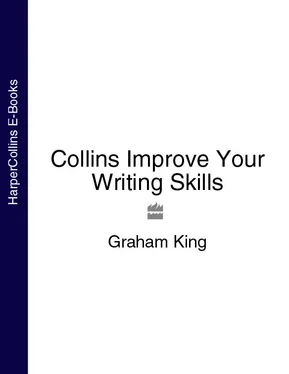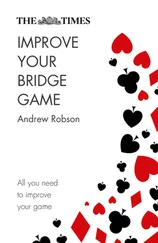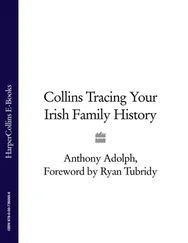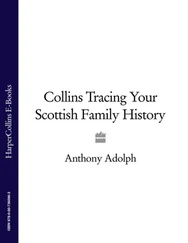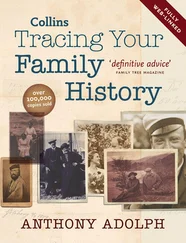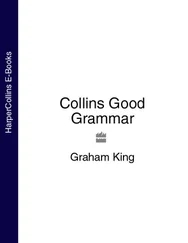One simple way to accomplish this is always to think economically. Less is often more. Some of the greatest thoughts and concepts in history have been expressed in surprisingly few words. The Ten Commandments are expressed in just 130 words; the Sermon on the Mount in 320, Kipling’s poem ‘If’ is less than 300 words long and the American Declaration of Independence was made in 485 words.
On the other hand a recent EEC internal memo on aubergine production and marketing issued in Brussels hit a word count of 9,800! Of all these, which would you think is the most readable?
The same applies to words: shorter is better. Many famous writers of the past were experts at saying what they meant in very few words, and simple, often one-syllable words at that. Milton and Shakespeare were deft users of simple words but for beauty achieved through sheer simplicity it is hard to beat Robert Herrick’s The Daffodils :
We have short time to stay, as you,
We have as short a spring;
As quick a growth to meet decay,
As you, or any thing.
We die,
As your hours do, and dry
Away,
Like to the summer’s rain;
Or as the pearls of morning’s dew
Ne’er to be found again.
With the exception of just a few words ( decay, away, summer’s, etc) every word of this stanza is of a single syllable, perhaps symbolic of the brevity of life, and it is a model that every writer could aspire to.
Of course economy of expression isn’t everything and it can be misleading to argue the toss between long and short words, concrete or abstract nouns, active or passive voices. What is important is selecting the right word, and putting it in the right place for the right reason.
Before you begin to write . . . THINK!
Another English writer, William Cobbett, declared that ‘He who writes badly thinks badly’. You could usefully reverse this. A minute’s thought before a minute’s writing is advice worth thinking about, perhaps on the following lines:
What do I want to say?
Am I making just one main point, or several?
If several, what’s the order of importance?
You may find it worthwhile to jot down your points before starting your letter, or report, or story. Once you’ve organised your material you can then concentrate on expressing it in writing, getting the right words in the right places.
When you’ve completed your writing – and this is the vital bit – read it through and decide, as critically as you dare, whether you’ve got it right. Try to put yourself in the shoes of the reader. Is the meaning clear? Is it expressed directly? Is it interesting to read? How would I feel after reading it? If the answers to any of the first three questions is ‘no’ or even ‘well . . . ’ you should try to face up to rewriting it. Nobody pretends that rewriting isn’t an unwelcome task but the reward is worth it – the satisfaction of having improved upon your first effort. Of course, if you use a word processor the job of rewriting (often sentence by sentence or paragraph by paragraph) is easier.
Thinking before writing will help you avoid clangers like this paragraph from a bank’s letter to a customer:
We will not charge the £19 and £23 fee if your account had an average cleared credit balance of at least £500 during the period we were charging for. If you only pay a charge as a result of a charge you paid in the previous charging period, we will refund this second charge if you ask.
Pardon? Oddly enough, this piece of nonsense bore the Crystal Mark, the seal of clarity approved by the Plain English Campaign, which brings us to the two key organisations in Britain devoted to the elimination of drivel and gobbledegook and the encouragement of clear language and plain English.
The Golden Bull vs the Golden Rhubarb
The self-appointed guardian angel of our national tongue is Chrissie Maher, OBE, founder of the Plain English Campaign. Remarkably, Ms Maher, who was brought up by a widowed mother in a poor household in wartime Liverpool, did not learn to read or write until she was in her teens. The disability dogged her until, during a job interview with an insurance company, she admitted she was illiterate. Instead of rejection she was told she could have the job, provided she studied at night school; three years later she could read, write and count. In her adult life she went on to a degree course in sociology.
A deprived background made Chrissie Maher keenly aware of how uneducated people were fobbed off by officialese they couldn’t understand, and how they were often coerced into signing important documents and forms, with little idea about what the small print meant. When she came across a case in which an old lady died of hypothermia because she couldn’t understand the application form for a home heating grant, she decided to do something about it.
Maher launched the Plain English Campaign in 1979: since then, with its relentless exposure of bureaucratic pomp and absurdity, it has become both feared and admired. It prompted a government review which resulted in some 36,000 official forms being scrapped and another 60,000 rewritten to make them more easily understood. It is frequently hired by organisations to vet their forms and sales literature and issues a ‘Crystal Mark’ to commercial prose which passes its standards of clarity. To transgressors of simple English however, it issues its annual Golden Bull awards. Winners of this trophy – appropriately a pound of tripe – include the Department of Agriculture which defined cows, pigs and sheep as ‘grain-consuming animal units’, a car sales firm which described a used car as a ‘pre-enjoyed vehicle’, and the National Health Service for defining a bed as:
A device or arrangement that may be used to permit a patient to lie down when the need to do so is a consequence of the patient’s condition rather than a need for active intervention such as examination, diagnostic intervention, manipulative treatment, obstetric delivery or transport.
The more recent Plain Language Commission has identical objectives and issues its own annual awards – the Golden and Silver Rhubarb trophies for the year’s most baffling documents.
Both organisations waged a war of blunt words in 1995 when the Commission awarded NatWest Bank a silver trophy for what it called an example of the year’s worst gobbledegook in a booklet about mortgage rates, part of which read:
Depending upon the type of mortgage you have, repaying early can have certain financial consequencies [sic], for instance, early repayment of a mortgage and surrender of an endowment policy, may leave you with a small surrendering sum, which may not reflect the actual monies invested. Alternatively, cancellation of a life policy without considering future needs may ultimately mean increased premiums for the same amount of life cover in the future.
To the embarrassment of the Plain English Campaign, NatWest Bank had just been nominated for its ‘Crystal Clear Bank of Europe’ award for the ‘ease with which its literature could be understood’!
You may wonder, when the experts in concise, coherent communication disagree so profoundly, whether you will ever see the clear light of day through the other side of the jungle. But take heart and read on and you will learn how even the most dense thicket of verbiage can be trimmed and tamed.
If language can be like a jungle sometimes, officialese is the minefield laid among the thorny thickets and clinging creepers. And despite the successes of the Plain English teams, officials in government, local councils and other bureaucratic organisations still too often try to lure us into their baffling word mazes.
Читать дальше
